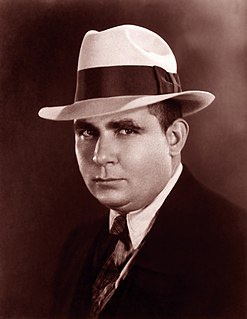A Quote by Friedrich Nietzsche
Only with the ultimate knowledge of all things will man have come to know himself. For things are but the boundaries of man.
Related Quotes
Unless a man has pity he is not truly a man. If a man has not wept at the worlds pain he is only half a man, and there will always be pain in the world, knowing this does not mean that a man shall dispair. A good man will seek to take pain out of things. A foolish man will not even notice it, except in himself, and the poor unfortunate evil man will drive pain deeper into things and spread it about wherever he goes.
My knowledge is, if you will follow the teachings of Jesus Christ and his Apostles, as recorded in the New Testament, every man and woman will be put in possession of the Holy Ghost. . . . They will know things that are, that will be, and that have been. They will understand things in heaven, things on the earth, and things under the earth, things of time, and things of eternity, according to their several callings and capacities.
Man is the namer; by this we recognize that through him pure language speaks. All nature, insofar as it communicates itself, communicates itself in language, and so finally in man. Hence, he is the lord of nature and can give names to things. Only through the linguistic being of things can he get beyond himself and attain knowledge of them-in the name. God's creation is completed when things receive their names from man, from whom in name language alone speaks.
If one does not make human knowledge wholly dependent upon the original self-knowledge and consequent revelation of God to man, then man will have to seek knowledge within himself as the final reference point. Then he will have to seek an exhaustive understanding of reality. He will have to hold that if he cannot attain to such an exhaustive understanding of reality he has no true knowledge of anything at all. Either man must then know everything or he knows nothing. This is the dilemma that confronts every form of non-Christian epistemology
In the popular arena, one can tell ... that the average man ... imagines that an industrious acquisition of particulars will render him a man of knowledge. With what pathetic trust does he recite his facts! He has been told that knowledge is power, and knowledge consists of a great many small things.
The search for truth is, as it always has been, the noblest expression of the human spirit. Man's insatiable desire for knowledge about himself, about his environment and the forces by which he is surrounded, gives life its meaning and purpose, and clothes it with final dignity.... And yet we know, deep in our hearts, that knowledge is not enough.... Unless we can anchor our knowledge to moral purposes, the ultimate result will be dust and ashes- dust and ashes that will bury the hopes and monuments of men beyond recovery.
I know that in many things I am not like others, but I do not know what I really am like. Man cannot compare himself with any other creature; he is not a monkey, not a cow, not a tree. I am a man. But what is it to be that? Like every other being, I am a splinter of the infinite deity, but I cannot contrast myself with any animal, any plant or any stone. Only a mythical being has a range greater than man's. How then can man form any definite opinions about himself?.
He who desires to become aware of the hidden light must lift the feeling of fear up to its source. And he can accomplish this if he judges himself and all he does. For then he sheds all fears and lifts fear that has fallen down. But if he does not judge himself, he will be judged from on high, and this judgment will come upon him in the guise of countless things, and all the things in the world will become messengers of God who carry out the judgment on this man.
The best-informed man is not necessarily the wisest. Indeed there is a danger that precisely in the multiplicity of his knowledge he will lose sight of what is essential. But on the other hand, knowledge of an apparently trivial detail quite often makes it possible to see into the depth of things. And so the wise man will seek to acquire the best possible knowledge about events, but always without becoming dependent upon this knowledge. To recognize the significant in the factual is wisdom.










































